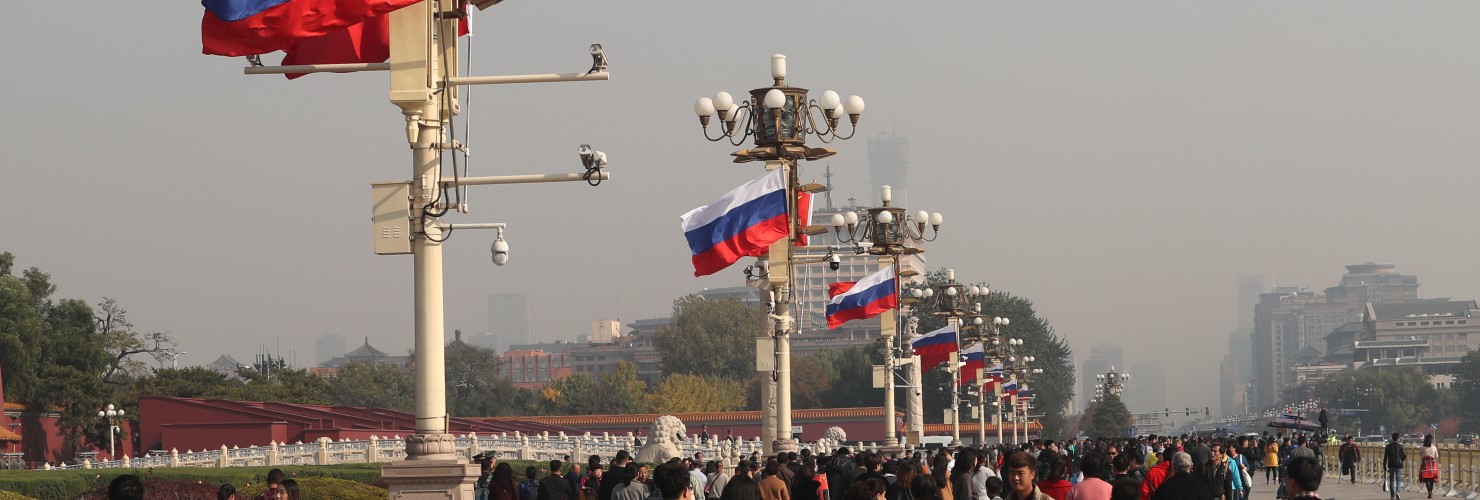

EU-China Opinion Pool: Key lessons for the EU from China’s position on the Ukraine war
The Russian war on Ukraine has entered its eighth month. In spite of Xi Jinping’s reported “questions and concerns”, referenced by Vladimir Putin at the recent Shanghai Cooperation Organization summit in Samarkand, Beijing continues to provide Moscow with rhetorical support, amplify Russian narratives and even remains open to developing economic cooperation with Russia. It has, however, taken care not to compromise its own economic interests or openly fall foul of Western sanctions in the process.
Against the backdrop of deteriorating EU-China bilateral relations, and as tensions surrounding Taiwan increase, can Beijing’s positioning on the war in Ukraine offer the European Union insights into China’s strategic thinking and scope of action to guide EU decision making going forward?
In this round of MERICS’ EU-China opinion pool, we have asked a number of experts:
Seven months into Russia’s war on Ukraine, what key lessons can the EU take away from China's position on the conflict?
The MERICS EU-China Opinion Pool is compiled by MERICS Analyst Grzegorz Stec.
Yurii Poita
Head of the Asia-Pacific Section at the Kyiv-based Center for Army, Conversion and Disarmament Studies (CACDS)
It is obvious that China is trying to draw lessons from the Russian-Ukrainian war with a possible conflict with Taiwan in mind. During expert discussions with Ukrainian colleagues, government-affiliated Chinese analysts tried to ascertain the scale and possible duration of Western international support for Ukraine, as well as the likelihood of “Ukraine fatigue” developing in the EU. They were keen to understand the reasons behind Ukraine’s defensive effectiveness and the unique features of its military training system. They were also interested in the role played by the West in Ukrainian decision making. This may indicate that China is preparing for a future conflict with Taiwan. Such a conflict would have catastrophic consequences for the global economy and security architecture.
The most significant takeaway for the EU is that it should prepare for a potential conflict in the Taiwan Strait in such a way as to avoid a repeat of the foreign policy failure represented by the current war, or at the very least ensure that it is less painful. Moreover, by the time of a possible conflict between China and Taiwan it is crucial for Ukraine to have developed into a strong independent state that is well integrated into Europe’s economic and security and defense landscapes. This would help avoid a two-front (Russian and Chinese) dilemma for the EU. To do this, Ukraine must be fully integrated into the EU – and, if possible, into NATO. Shutting out Ukraine creates additional vulnerabilities for Europe, and China or Russia will definitely take advantage of this.
Helena Legarda
Lead Analyst at MERICS

China’s response to Russia’s war on Ukraine has been a rude awakening for many in Europe. Initial calls for China to mediate have given way to disillusionment with its increasingly open support for Moscow. Beijing’s position, however, can and should provide at least three key lessons for Europe.
First, Beijing increasingly looks at the world through the lens of its geopolitical competition with the United States (and the West at large). This means that China will not side with the US or Europe against countries it sees as geopolitical or strategic partners. No amount of engagement or cajoling is likely to change this position.
Second, China is still economically and technologically dependent on Western countries. The fear of secondary sanctions has driven Beijing to (mostly) comply with Western measures against Russia and to keep its material support for Moscow to a minimum. This is a point of leverage that Europe can use to increase deterrence, for example in the Taiwan Strait. But the EU must also keep in mind that China, too, has drawn this lesson and is now intensifying efforts to reduce its own dependencies.
A third, broader lesson is that economic interdependence not only does not stop wars but may even be weaponized in case of conflict. Applying this to EU China policy would require Europe to diversify its economic ties and reduce dependencies on China. It is also important that this lesson does not stay confined to those countries – such as Germany – that are facing energy shortages today. EU-China economic ties are much broader in nature and affect many more sectors and countries, including those in Southern Europe that have avoided the worst of the energy crisis.
Plamen Tonchev
Head of Asia Unit at the Athens-based Institute of International Economic Relations

The Greek government has taken a firm stance against Russia’s invasion of Ukraine, both as a principled position in line with the international rules-based order and as a calculus based on its own national interests. Being an EU and NATO member, Greece aligned its position with that of its Western partners immediately after the start of the war.
Athens worries about growing threats in its own neighborhood: unless Greece supports Ukraine, it could not invoke its right to territorial integrity in the event of aggression by next-door Turkey. Yet another factor weighing in relates to Ukrainian citizens of Greek descent brutally uprooted in Mariupol, as well as the Greek community of Odesa.
However, China’s image has not suffered a heavy blow in Greece. Beijing’s fence-sitting strategy and “Russia-friendly neutrality” have definitely been noted but not officially commented on, let alone condemned. Given its status as a permanent member of the UN Security Council, China is seen by the Greek political elite as a powerful actor. Athens’ rationale is that Greece may have to rally as much international support as possible in case of a flare-up in the Aegean Sea.
A lesson to be learned from this major crisis is that, as much as member states may be committed to the writ of the international law and a rules-based order, they won’t relinquish their national priorities. Aligning them will remain a significant task for collective EU institutions.
Jakub Jakóbowski
Senior Fellow with the China Programme of the Warsaw-based Centre for Eastern Studies (OSW)

Certainly, the most important lesson for the EU is that the China-Russia relationship can be held in check by the West by means of a credible threat of economic sanctions on Beijing. Sticking to the policy line defined on February 4, China apparently still sees strategic gain in verbally and diplomatically supporting Russia’s invasion – although likely not without some “questions and concerns” on its implementation. However, the dearth of tangible military and economic support shows that the realistic possibility of incurring economic costs – with clear red lines drawn during the Xi-Biden call in March, later echoed during the April 1 EU-China summit – can change China’s strategic calculus. It also puts additional stress on the Moscow-Beijing axis. This is a valuable conclusion both in terms of stopping Russia’s war in Europe and economic deterrence related to the Taiwan issue.
The less optimistic lesson is that in its strategic positioning on Ukraine – and the diplomatic narratives that reflect it – Beijing completely disregards EU interests and sensitivities. Narratives on “US influence” and calls for “more independent” EU policy show that Beijing’s approach to Europe is – quite ironically – increasingly shaped by the “cold-war mentality” of its strategic rivalry with the United States. This leaves little space for constructive dialogue – as shown by the rapid decay of the 16+1 format. While staying moderate and principled, the EU should seek to approach China from a position of strength, as the goodwill is quickly disappearing.
